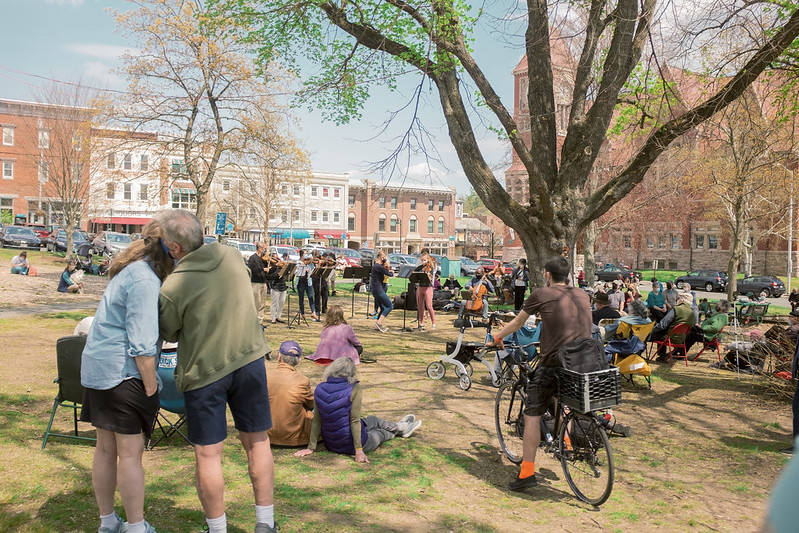Think of a place you frequent where you have no obligations to be there or complete a specific task; no money is earned, and the only things gained are connections with others and a comfortable place to exist. This would be considered a third place. If you can’t think of a place like this, you are not alone.
A third place refers to a location outside of the home (first place) and the workplace/school (second place) that enhances one’s community. Third places are a key component in building a community and support system, yet they seem to be vanishing.
Coffee shops, bars, local stores and parks can all serve as third places. Now, however, we live in an age where people are being antagonized for existing in public spaces. This demonization of socializing has encouraged people to avoid third spaces, effectively decreasing their popularity.
I’ve witnessed harassment from bystanders for simply existing in public places. Oftentimes, I see posts on my town’s Facebook page targeting children for hanging out in parks or outside coffee shops after school. While these kids often aren’t causing any trouble, they are consistently at the center of this issue.
The harassment of individuals being attacked by others for existing in public spaces is exemplified by the archetype of a “Karen,” and has led to spending time in public spaces becoming synonymous with loitering.
For adults, the lack of a third space can be explained by the need to work more to compensate for societal issues like inflation. Working more hours forces people to spend less time making connections with others. Aside from the workplace and the home, making connections with strangers is becoming nearly nonexistent.
The rising popularity of social media is also contributing to the disappearance of third places. While social media can create communities, it doesn’t replace the need for face-to-face interactions.
It’s clear that loneliness is becoming an epidemic. A study found that between 1976 and 2019 the rate of loneliness has increased almost every year among young adults. With the increased hours spent working and social interactions becoming limited to social media, more people are finding themselves without friends or a community.
The generational differences among third places also must be acknowledged. Generation Z seems to be overly concerned with how they are perceived — the idea of conversing with strangers is my personal worst nightmare. In these instances, I fear being seen as a bother or annoying, yet my father, a member of Generation X, does not have the same fears. While it can be expected for social norms to evolve, we should still be able to interact with members of our communities without these anxieties taking over.
An essential aspect of the third place is that they must have little to no financial commitment. Ray Oldenburg, who coined the term “third places,” explained, “In the absence of informal public life, living becomes more expensive. Where the means and facilities for relaxation and leisure are not publicly shared, they become the objects of private ownership and consumption.”
Many public spaces require a fee to enter, from a gym membership to requiring proof of purchase. While third places are essential to one’s well-being, they are becoming a luxury. Many people are not privileged enough, whether financially or timewise, to engage with third places. Third places such as coffee shops or pubs are also on their way out with the rising costs of goods. Many people can no longer afford to spend $7 on a cup of coffee every day, or even once a week.
While the rate of new business formations set a record in 2021, they are becoming a commercial commodity. Seen as a financially-driven endeavor, business owners are becoming hostile to acting as a public forum. Whether it’s managers of fast-food chains calling the police or unfriendly employees or patrons, creating a community has become tedious and dangerous.
Finding active third spaces should not be difficult. Whether it’s the coffee shop you walk past every day or finding an interest group, these third places should be convenient and easy to fit into one’s daily routine.
The idea that socialization is intimidating must end. Fostering a healthy, active community with convenient third places is essential to personal well-being. Speak to others. Engage with new people. Join a new club. Challenge yourself to talk to a new person every day. Through this effort, we can bring back third places.
Katherine Varrell can be reached at [email protected].


















